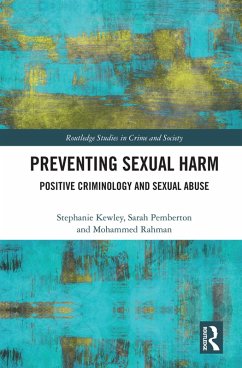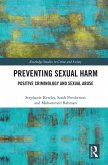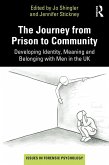Dieser Download kann aus rechtlichen Gründen nur mit Rechnungsadresse in A, B, BG, CY, CZ, D, DK, EW, E, FIN, F, GR, HR, H, IRL, I, LT, L, LR, M, NL, PL, P, R, S, SLO, SK ausgeliefert werden.
Shadd Maruna, author of Making Good: How Ex-Convicts Reform and Rebuild Their Lives
"While the authors do not make the claim for this text be one that is all-singing and all-dancing, in fact they could have justifiably made such a claim. The chapters cover a broad array of relevant areas, including important standard ones (definitions and prevalence, sentencing, management and risk assessment, prevention strategies) together with more forward-thinking chapters. The positive criminology approach is a welcome guest to the table, and this volume certainly contributes 'new ways of thinking' around sexual abuse, whilst covering the old favourites and standard fare one would expect."
Belinda Winder Research Director of the Sexual Offences, Crime and Misconduct Research Unit at Nottingham Trent University, UK
"The major goal of positive criminology to equip individuals who have committed crimes with the resources to living more meaningful and less harmful lives. It has its roots in the understanding that all human beings have intrinsic value and that therefore punishment should always be delivered in ways that demonstrate respect, and seek community healing. In this exciting new book, Stephanie Kewley, Mohammed Rahman and Sarah Pemberton apply the key ideas of positive criminology to the area of sexual abuse. In the process they demonstrate admirable scholarship, an appreciation of the complexity of crime prevention and treatment, and an excellent introduction to positive criminology for practitioners and researchers."
Tony Ward, developer of the Good Lives Model, Victoria University of Wellington, New Zealand









